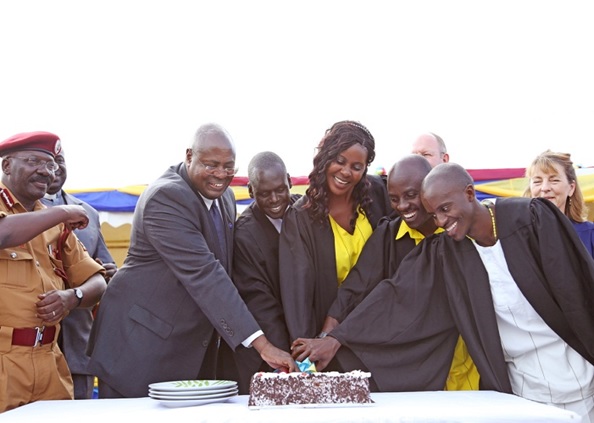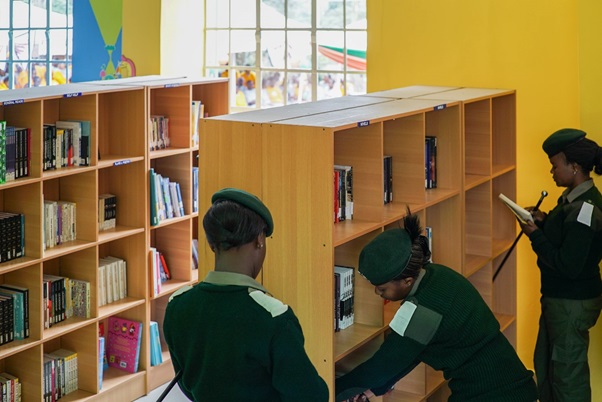“It is said that no one truly knows a nation until one has been inside its jails. A nation should not be judged by how it treats its highest citizens, but its lowest ones.”
https://www.youtube.com/watch?v=0Ukys3hX2j8
These words spoken by Nelson Mandela resonate even today in parts of Africa, with regards to the region’s penal reform initiatives. In recent years, prison conditions in Uganda and Kenya have been widely reported on.
Institutions have consistently failed to meet the international standards for the human rights of prison inmates. Following the death of Harrison Okumu at the Kisumu Maximum Security Prison in Kenya, concerns have surfaced over the health standards and security measures in prisons. Harrison not only attempted to commit suicide twice, but he was ultimately killed by his fellow inmates.
Are prison conditions in Uganda and Kenya reflective of the larger challenges faced by Africa? Can international standards of prisons be met by prisons in Africa? To find out the answers to these questions, the IPF spoke to Brenda Simpson, Regional Director of the African Prisons Project, an initiative working to bring dignity and hope to the men, women and children living and working in prisons across Africa.
Challenges to penal reform
The African Prisons Project acknowledge that several shortcomings plague prison conditions in the continent. Some defects include inadequate governance, funding and other resources.
Therefore, numerous hurdles come in the way of meeting international standards, such as prison overcrowding, huge case backlogs, little or no awareness of legal rights obligations and justice processes, and limited scope for state-provided legal aid. Brenda explained:
“In Uganda, prisons built to accommodate just over 16,000 currently hold 51,000 prisoners, while in Kenya, 48,000 prisoners are hosted in prisons built to accommodate just 27,000. More than half of these prisoners are merely awaiting trial.”
The health situation – with regards to risks of tuberculosis and HIV within prisons – is a microcosm of the wider society. High levels of overcrowding have resulted in African prisons becoming a fertile ground for the spread of infectious diseases. According to the African Prisons Project, the challenges specific to prisons in Uganda and Kenya must, therefore, be viewed against the backdrop of the general health conditions in the country.

[Image credit: African Prisons Project]
The plight of youth offenders
A widely discussed theme within the international framework of penal reform and prisoners’ rights is juvenile detention; mainly that young adults should be diverted from institutions of criminal justice towards more non-punitive and rehabilitative efforts.
Brenda noted that juvenile offenders will usually be held in juvenile detention centres and borstals in Uganda and Kenya respectively. There are however isolated incidences where inmates have disputed their age.
“The prison authorities have had the foresight to indicate that they, as custodians, are only responsible for taking charge of inmates once they are arrested and either remanded or convicted.”
Brenda continued: “That decision lies outside of the prison authorities’ mandate and is part of the judiciary’s mandate. The prison authorities have endeavoured to bring to the attention of the judiciary those whose ages are doubtful- accordingly, any issues as to underage detention would best be addressed by them.”
The challenges faced by young adults within prisons are often synonymous of conditions outside of the institution. According to the African Prisons Project, unemployment and lack of employability skills is one of the biggest challenges faced, with many unable to find employment before or after their incarceration. This is a serious problem for young Africans within and beyond prison walls.

[Image credit: African Prisons Project]
Relapse or rehabilitation?
A recent discourse in prison reform claims views prisons as “correctional facilities”; not just “detention centres”. This provides prisoners the opportunity to come out of the institutions as “better citizens”.
However, the Africa Prisons Project has questioned the rehabilitation method.
“To what does the rehabilitated person return to after a period in prison? The same depressed economic situation, lack of opportunities across all sectors, general unemployment and an inclination towards corruption and crime exists more outside of prison than within.”
Brenda explained that rehabilitative approaches incorporated within the prison services of Uganda and Kenya, which “slowly move away from the punitive nature of imprisonment, to correction, rehabilitation and transformation”. A separate Department of Education and Vocational Skills Training was even created to oversee the development of robust education policies for prisons in Uganda. However, challenges still remain.
Brenda concluded:
“Without addressing poverty and inequalities beyond prison walls and in the wider society, total eradication of recidivism may remain elusive.”
[Image credit: African Prisons Project]
The African Prisons Project’s changemakers
As a result of a public-private partnership strategy between the government and prison authorities, civil society members and NGOs play a key role in pursuing penal reform in Africa.
The African Prisons Project continues their work in the area and also trains a new generation of advocates from within prisons with first-hand experience of the justice system. Through their “Justice Changemaker” programme, the African Prisons Project instills notions of equality and dignity, using the law to serve marginalised members of community. Brenda said:
“We are working to create the next generation of penal reformers – often from within the system – in Africa, working to provide them with the confidence, social and professional networks, and academic skills to become ‘force multipliers’ and lead change across the continent.”
The Justice Changemakers model works through three key initiatives, the first of which focuses on Justice Changemaker services. Prisoners and prison staff are empowered through training to provide free legal support to those most in need, shining a light on the human rights of inmates and ensuring that they are well aware of them.
https://www.youtube.com/watch?v=uX_nucjgv3A
The second initiative, the Justice Changemakers Learning Journeys Programme, provides opportunities for prison staff and the wider justice system to take part in learning journeys – often to the United Kingdom. The programme equips prison officers, and stakeholders in the justice sector, with the skills and tools for influencing other stakeholders to adopt reform measures to the justice systems in their communities and nations.
Finally, the Justice Changemakers Training programme develops educational opportunities for prisons in Kenya and Uganda. Currently, more than 60 prisoners and prison officers study law under the University of London International Programmes.
“Prisoners and prison staff attend their daily law classes together and support each other as they study and prepare for exams. Here, in the law class, there are no barriers. They are using the power of the law to bring lasting change in their prisons environment.”
To find out more about the African Prisons Project, visit their website, follow them on Twitter and like them on Facebook.


